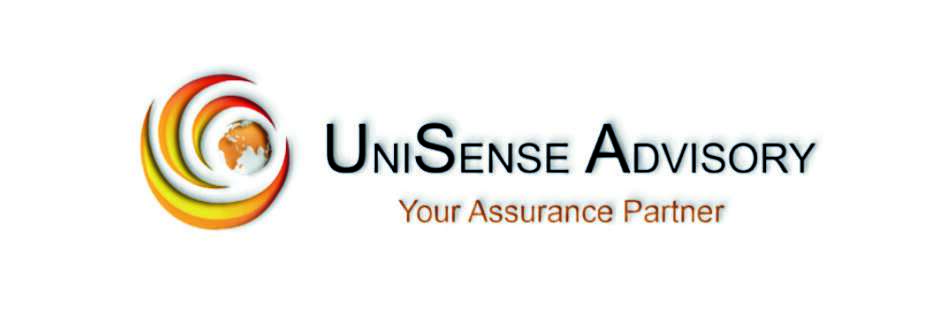
Types of Global Compliance Framework
Compliance is a cornerstone of many facts of life, ranging from legal frameworks to industry standards and organizational policies. At its core, compliance ensures adherence to rules, regulations, and standards set forth by governing bodies or internal mandates. However, the landscape of compliance is multifaceted, encompassing a wide array of categories tailored to specific industries, objectives, and legal requirements. In this article, we delve into the diverse types of global compliance, shedding light on their framework, significance, and implications across different domains.
Types of Global Compliance Frameworks
1. Regulatory Compliance
Regulatory compliance entails adhering to laws, rules, and regulations established by governmental bodies at local, national, or international levels. These regulations are designed to ensure that organizations operate ethically, transparently, and within the bounds of the law.
Frameworks Under Regulatory Compliance:
- Financial Industry: Basel III, Dodd-Frank Act, MiFID II (Markets in Financial Instruments Directive)
- Healthcare Industry: HIPAA (Health Insurance Portability and Accountability Act), FDA (Food and Drug Administration) regulations
- Data Protection: GDPR (General Data Protection Regulation), CCPA (California Consumer Privacy Act), DPDP (Digital Privacy Data Protection Act, India)
- Environmental Regulations: Clean Air Act, Clean Water Act, Kyoto Protocol
2. Environmental Compliance
Environmental compliance focuses on meeting the requirements outlined in environmental laws and regulations. It encompasses efforts to minimize negative impacts on the environment, including air and water quality, waste management, and conservation of natural resources. Organizations must comply with global compliance frameworks/standards related to pollution control, emissions, hazardous waste disposal, and sustainable practices to mitigate environmental risks and promote ecological sustainability.
Frameworks Under Environmental Compliance:
- ISO Standards: ISO 14001 (Environmental Management Systems), ISO 50001 (Energy Management Systems)
- EPA Regulations: Environmental Protection Agency regulations for air quality, water quality, waste management, etc.
- Industry-Specific Guidelines: Guidelines provided by industry associations or organizations focusing on sustainability and environmental responsibility.
3. Corporate Compliance
Global Corporate compliance framework involves adherence to internal policies, procedures, and guidelines established by organizations to uphold ethical standards, safeguard assets, and mitigate risks. This type of compliance encompasses areas such as corporate governance, code of conduct, anti-corruption measures, and risk management practices. By maintaining corporate compliance, companies strive to foster trust among stakeholders, enhance reputation, and uphold integrity in their operations.
Frameworks Under Corporate Compliance:
- Corporate Governance Codes: Sarbanes-Oxley Act (SOX), UK Corporate Governance Code
- Anti-Corruption: Foreign Corrupt Practices Act (FCPA), UK Bribery Act
- Ethical Guidelines: Industry-specific ethical guidelines set by professional associations or organizations.
4. Financial Compliance
The financial compliance framework pertains to adhering to regulations and standards governing financial activities and reporting. It includes compliance with accounting principles, financial disclosure requirements, taxation laws, and industry-specific regulations such as those imposed on banks and financial institutions by regulatory bodies like the Securities and Exchange Commission (SEC) or the Financial Conduct Authority (FCA). Ensuring financial compliance is essential for transparency, accuracy in financial reporting, and maintaining investor confidence.
Frameworks Under Financial Compliance:
- Accounting Standards: Generally Accepted Accounting Principles (GAAP), International Financial Reporting Standards (IFRS)
- Regulatory Bodies: Regulations by SEC (Securities and Exchange Commission), FCA (Financial Conduct Authority), FINRA (Financial Industry Regulatory Authority)
- Basel Accords: Basel II, and Basel III frameworks for banking regulation and risk management.
5. Healthcare Compliance:
Healthcare compliance involves adhering to laws, regulations, and industry standards within the healthcare sector to ensure patient safety, privacy, and quality of care. It encompasses compliance with regulations such as HIPAA, which protects patient health information, as well as standards related to billing practices, fraud prevention, and clinical protocols. Healthcare organizations must navigate complex regulatory landscapes to maintain compliance while delivering effective and ethical healthcare services.
Frameworks Under Healthcare Compliance:
- HIPAA Regulations: Health Insurance Portability and Accountability Act regulations for safeguarding protected health information (PHI)
- Medicare and Medicaid Guidelines: Regulations related to billing practices, fraud prevention, and quality of care.
- FDA Regulations: Food and Drug Administration regulations for drug safety, medical device approval, etc.
6. IT Compliance
Global IT compliance focuses on aligning information technology practices with regulatory requirements and industry standards to protect data integrity, confidentiality, and availability. It encompasses compliance with global framework such as the Payment Card Industry Data Security Standard (PCI DSS), which governs the handling of cardholder data, and cybersecurity regulations aimed at safeguarding sensitive information from cyber threats. IT compliance is crucial for mitigating cybersecurity risks, ensuring data privacy, and maintaining the trust of customers and stakeholders.
Frameworks Under IT Compliance:
- PCI DSS: Payment Card Industry Data Security Standard for secure handling of cardholder data.
- ISO/IEC Standards: ISO/IEC 27001 (Information Security Management Systems), ISO/IEC 27002 (Code of Practice for Information Security Controls)
- Cybersecurity Regulations: Industry-specific cybersecurity regulations, such as NIST Cybersecurity Framework, and GDPR’s data protection requirements.
Occupational Health and Safety (OHS) Compliance
OHS compliance involves meeting regulations and standards aimed at ensuring workplace safety and protecting employees from occupational hazards and risks.
Frameworks Under Occupational Health and Safety Compliance:
- OSHA Regulations: Occupational Safety and Health Administration regulations for workplace safety standards.
- ISO Standards: ISO 45001 (Occupational Health and Safety Management Systems)
- Industry-Specific Guidelines: Guidelines provided by industry associations or organizations focusing on workplace safety and health standards.
Conclusion
Compliance encompasses a spectrum of categories, each with its own set of regulations, standards, and best practices tailored to specific industries and objectives. Whether it’s regulatory, environmental, corporate, financial, healthcare, IT, or occupational health and safety compliance, organizations must prioritize adherence to legal and ethical standards to mitigate risks, promote accountability, and uphold integrity in their operations.
By embracing a proactive approach to compliance, businesses can navigate regulatory complexities, foster trust among stakeholders, and sustain long-term success in an ever-evolving regulatory landscape.



